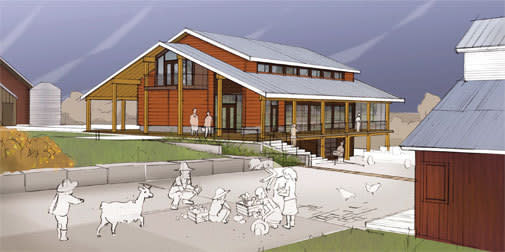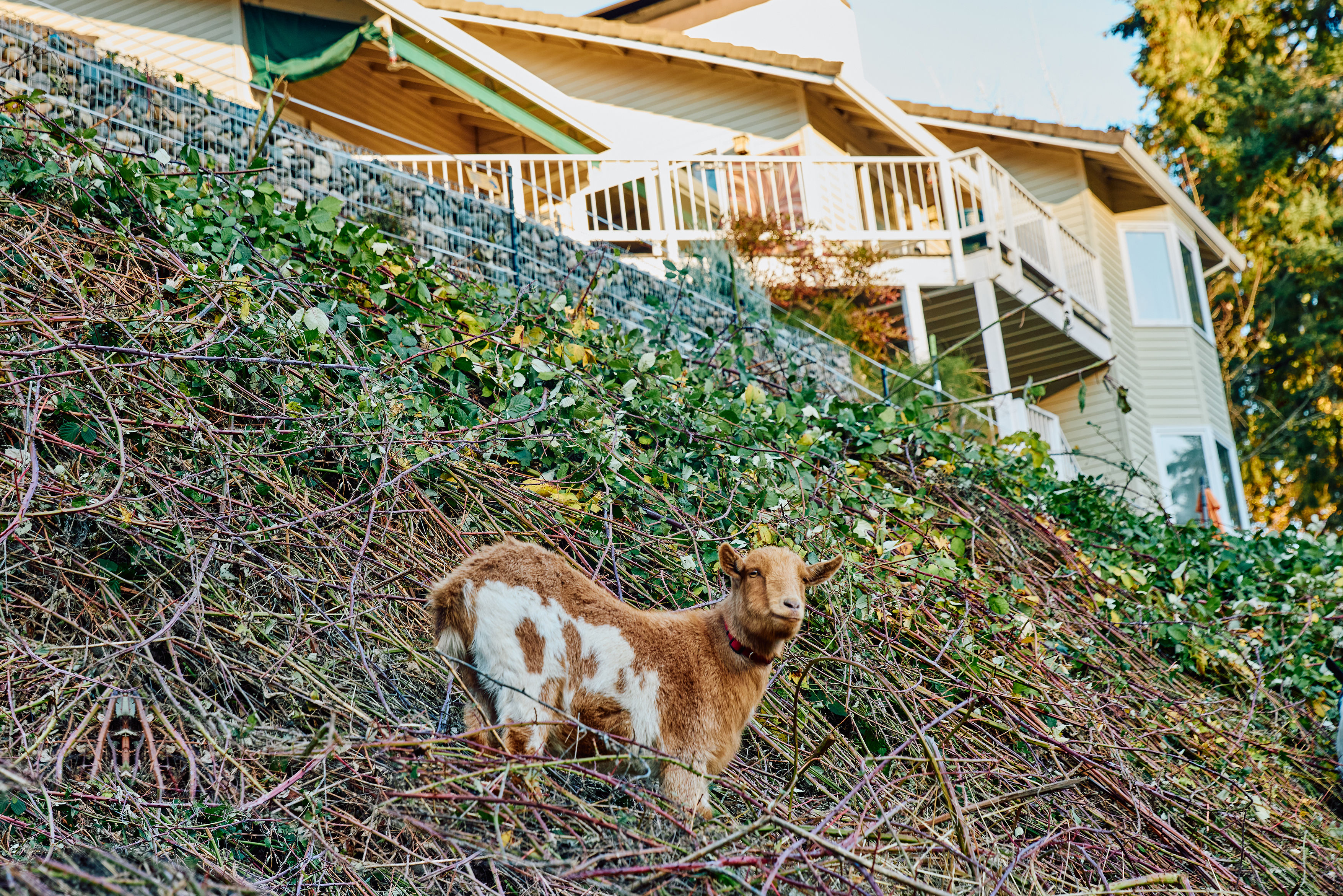Portland's Urban Grange

DECA has designed (pro bono) the new Urban Grange Zenger Farm is raising money to build.
Image: Courtesy Zenger Farm
Portland is sometimes lamented for its lack of diversity, and of course we do pale (literally) in comparison with London, New York City, or Vancouver, BC. But diversity exists in Portland. It’s just not evenly spread across the metro area, and maybe doesn’t describe all of our households or neighborhoods.
The Lents neighborhood, however, is one of Portland's most diverse. If you don’t live there, a reason to visit is to party at the fundraiser Independence Gardens is sponsoring for Zenger Farm’s new Urban Grange, Thursday, August 15, 2013.
Zenger Farm has been around as a non-profit since the 1990s, slowly expanding and gathering strength for its food and community-related educational programs. Building an Urban Grange is its logical next step. (Read a profile of the farm.) They’re in the midst of a capital campaign to raise $1.9 million. According to their website, they’re up to about $700,000.
If you're not already a card-carrying urban farmer, you may wonder: what is an urban grange? Or for that matter, what is a grange? Many of us (suburban-raised Americans) have only a vague sense of what a grange is: a white-painted clapboard building on a country road somewhere; not quite a country church, not quite a City Hall; a simple building we drive past on the way to somewhere else.
As the folks at Zenger Farm describe it, grange halls have historically been “gathering places for rural folk to break bread, support one another in times of need, and celebrate the bounty of the land.” They are organizations that have a physical presence (a building in which to meet); community-oriented, not private or exclusive; secular and non-commercial.
The first grange was started in 1867 by a Minnesota farmer named Oliver Hudson Kelley as a way for otherwise independent and isolated farmers to join forces – a sort of equivalent to a contemporary movement industrial workers forming unions. The focus was always on strength in numbers – not only for economic but also educational opportunities.
In the city planning lingo, a grange is what can be called a “third place” – something often missing in the typical American lifestyle these days. A third place is neither home nor workplace, but in between: open to the public, secular and non-commercial. Coffee shops, movie theaters, shopping malls, country clubs, churches, schools and government halls – none of these quite count as third places, though some may act as such.
Portland Monthly was excited to sponsor a Country Brunch benefit for the Urban Grange back in June (see the pix). That event was held at the Yale Union, in the Central Eastside. This benefit will get you closer to Zenger Farm's eastside Lents landscape – and probably out of your usual pocket of Portland, wherever that pocket may be.
Independence Gardens specializes in “building sustainable edible gardens” and its founding owners are headquartered and rooted in the land of the Lents neighborhood. Festivities for the evening event will include food, drink, and a screening of the new documentary Gaining Ground. (Eastside Distilling will offer tastes of Burnside Bourbon and Cherry Bomb Whiskey, for those over 21 and so inclined!)
An urban grange would be a welcome addition to what today's Portland has to offer, in my admittedly biased suburban-raised opinion.
Benefit for Zenger Farm's Urban Grange
- WHERE: The Lents International Farmers Market site, SE 92nd Ave. and Foster Road
- WHEN: Thursday, August 15th, 2013 – Food and drink start at 7 pm; the 20 minute film will be shown at 8 pm, with Q&A to follow.
- Admission is $10, and includes one drink ticket (ID required to redeem) if purchased in advance. All proceeds go to Zenger Farm’s Urban Grange.
- Sponsored by Independence Gardens.




